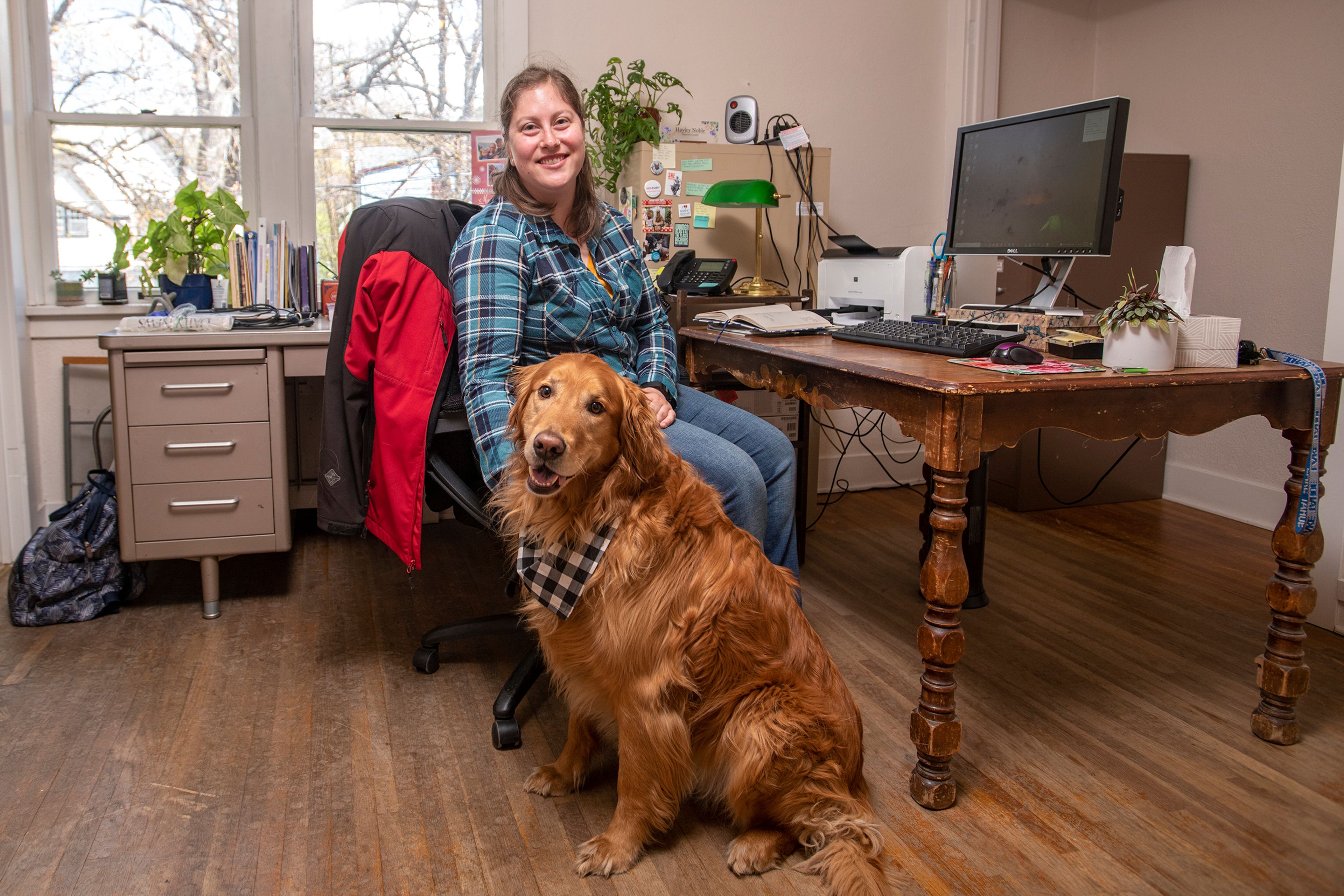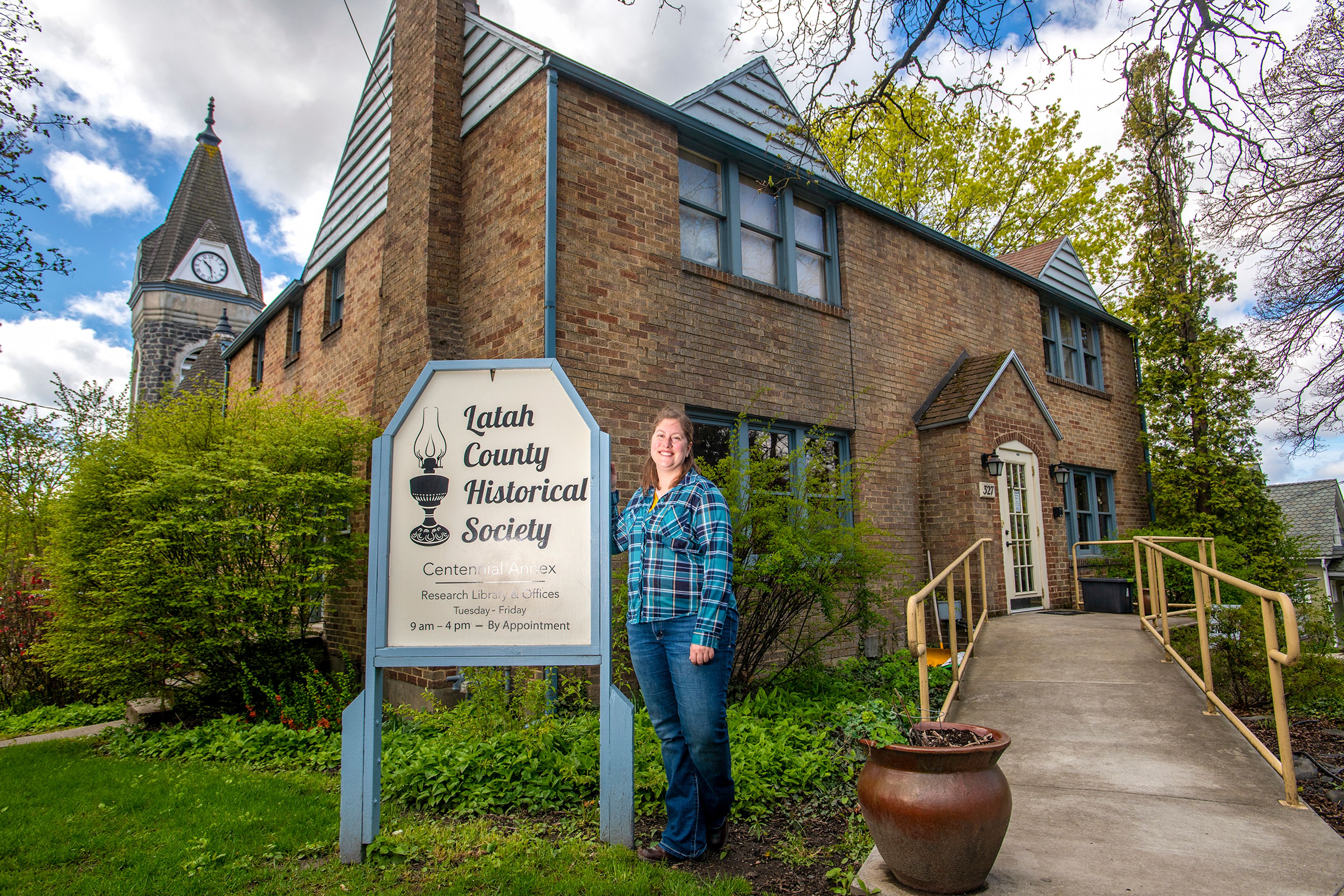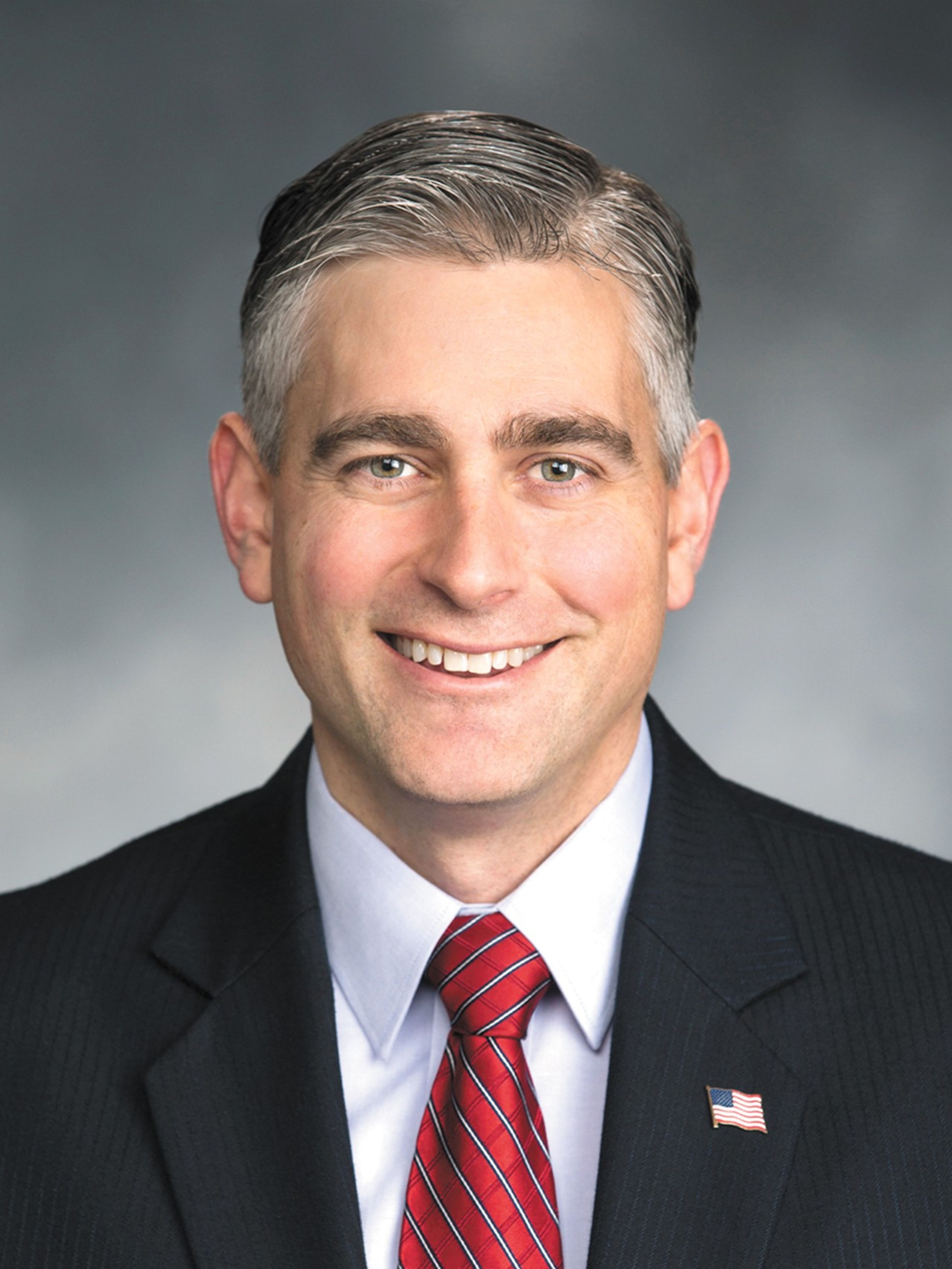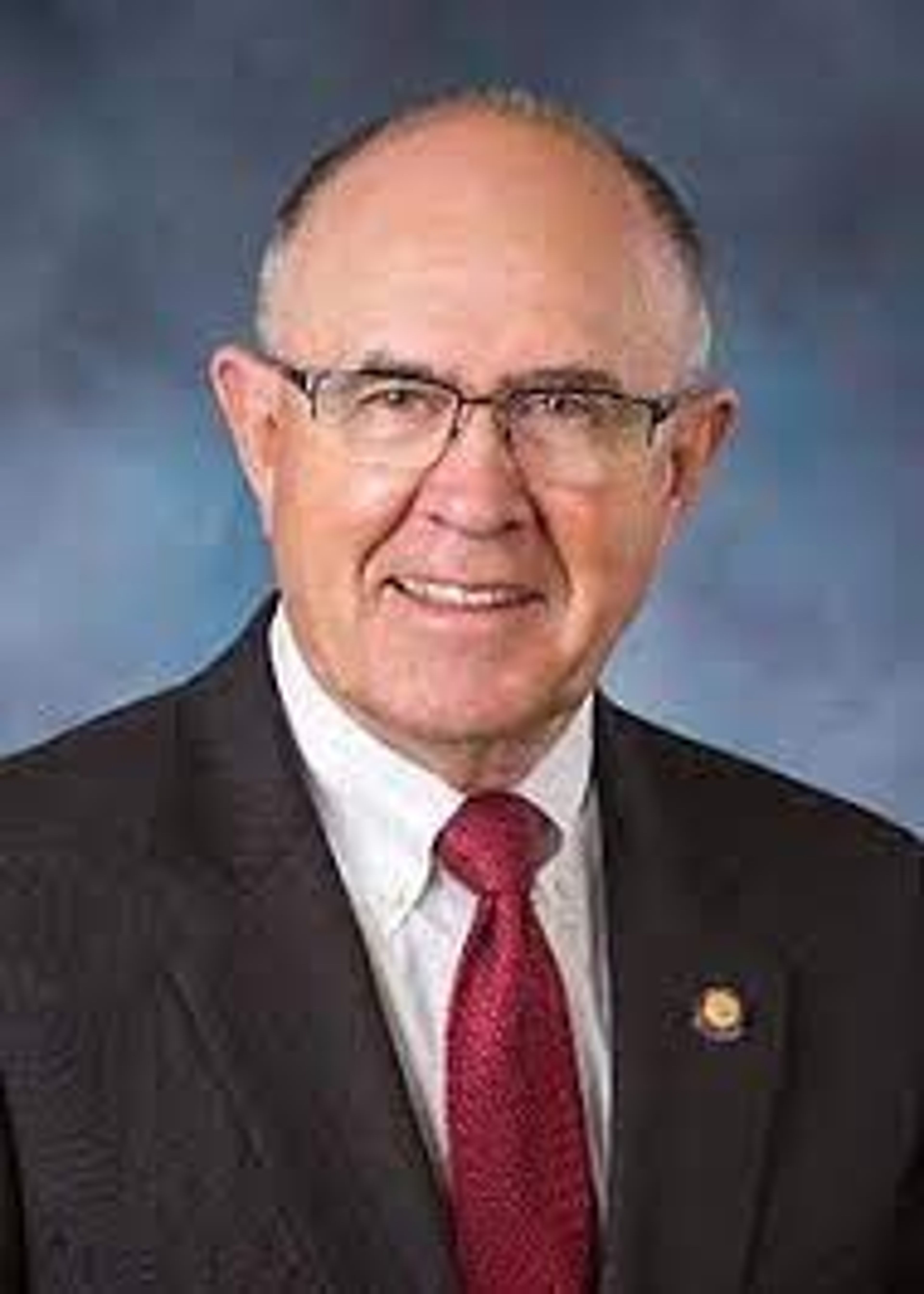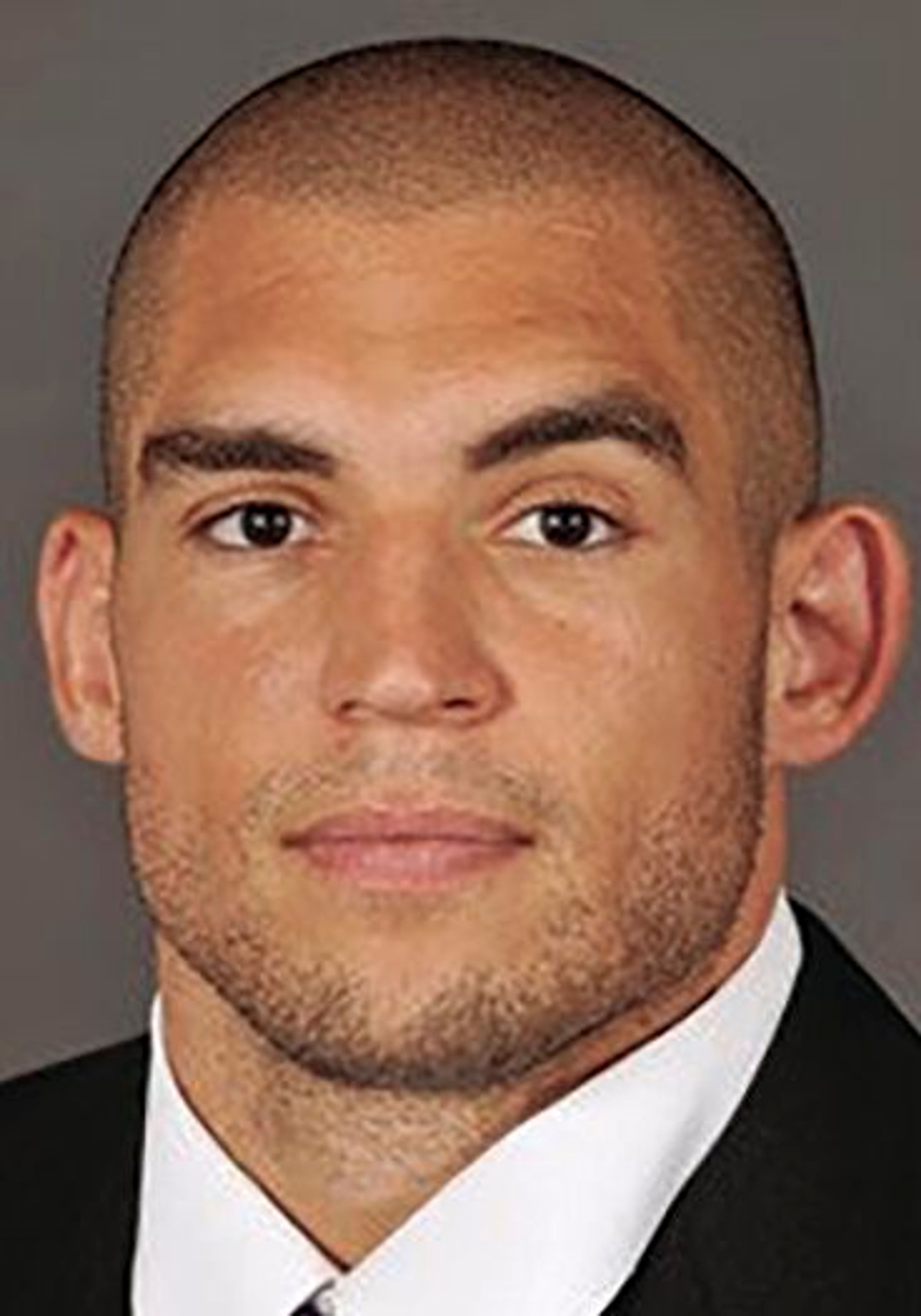History lover takes on top job at Latah County Historical Society
Hayley Noble, who joined operation last summer, became executive director in April
The Latah County Historical Society recently invited Hayley Noble to become a bigger part of their team, offering her the executive director position. New to Moscow, Noble moved north from Boise last July and started at the Historical Society as a curator.
Growing up in the blazing desert, in the small, interstate town of Winnemucca, Nev., Noble thought Boise was the big city.
Coming to Boise State University to earn her bachelor’s and master’s in history, Noble found herself living in Boise for 10 years and enjoying the atmosphere similar to her hometown.
One of Noble’s passions is history. Before graduating with her master’s, she did her thesis on Soviet women in combat on the eastern front during World War II. During Noble’s college career, she minored in anthropology, art history and dance. She said she was able to combine her areas of emphasis to view all facets of people of the past in a new light.
Given her familiarity with small-town life, Noble decided to move to Moscow and escape the fast-growing, traffic-filled city of Boise.
“I'm just much more of a small-town kind of person,” Noble said. “Boise was growing so quickly and getting so expensive, that I was just really excited to live in a smaller town again.”
Noble was hired at the Latah County Historical Society as a curator last summer. In April, she was promoted to the executive director at the Historical Society.
As a curator, Noble did a lot of work with the McConnell Mansion, a Victorian house museum that's open to the public and free to visit.
Noble also manages the volunteer program, and does both the curator and director jobs at the same time.
As executive director, Noble is working on engaging younger audiences.
“I'm looking forward to keeping these traditions alive, that people have really grown to love in the community,” Noble said. “But also, you know, trying to get creative and figure out what new things we can offer.”
Before Noble set to move north, she worked at the Idaho State Historical Society, doing research and maintaining the historic Old Idaho Penitentiary. The penitentiary is a historical site in Boise that operated from 1872 to 1973. Noble said at the prison, there’s a collection called the J. Curtis Earl Memorial exhibit, named after a man who was a large-weapons collector. He donated his collection to the state upon his death.
At the penitentiary, Noble did lots of public programming, including giving tours of the exhibit.
Noble has also been a part of other projects in the Boise area, like managing the oral history collection for the city of Boise’s Department of Arts in History. She also worked with the Basque Museum and Cultural Center.
Noble said preserving history is important because “it gives people shared past experiences where we all came from.”
“Right now, it's so hard because history has become such a target for political rhetoric that it's become very challenging to reconcile with such strong opinions,” Noble said. “When people are able to connect with their history, it's very empowering. Even if you know that history wasn't particularly good, learning about it and having that ownership of it really helps you understand where people are coming from.”
Pearce can be reached at epearce@dnews.com or on Twitter @Emily_A_Pearce.
